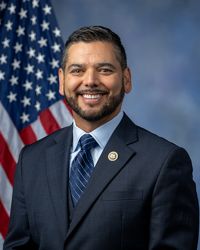0
Public Service Spending Integrity Act
1/11/2023, 1:43 PM
Summary of Bill HR 231
Additionally, the bill establishes a new oversight body, the Public Service Spending Integrity Commission, which will be responsible for monitoring and auditing government spending to ensure that it is being used efficiently and effectively. The commission will have the authority to investigate any instances of waste, fraud, or abuse in government spending and to recommend corrective actions to prevent future misuse of funds.
Furthermore, the bill includes provisions to protect whistleblowers who report instances of government waste or fraud, ensuring that they are not retaliated against for speaking out. It also requires government agencies to establish internal controls and procedures to prevent and detect improper spending practices. Overall, the Public Service Spending Integrity Act is aimed at promoting transparency, accountability, and integrity in the use of public funds by government agencies, ultimately working to ensure that taxpayer dollars are being used responsibly and effectively.
Congressional Summary of HR 231
Public Service Spending Integrity Act
This bill restricts federal spending at businesses of the President, specified other officials, or their family members.
Specifically, the bill prohibits federal funds from being obligated or expended for purposes of procuring goods or services at any business owned or controlled by a covered individual or family member of such individual, except for certain authorized security purposes. A covered individual is defined to include the President, the Vice President, the head of any executive department, and any individual occupying a position designated by the President as a cabinet-level position. No federal agency may enter into a contract with a business owned or controlled by a covered individual or family member.
A business shall be deemed to be owned or controlled by a covered individual or family member if any such person (1) is a member of the board of directors or similar governing body of the business, (2) directly or indirectly owns or controls more than 50% of the voting shares of the business, or (3) is the beneficiary of a trust which owns or controls more than 50% of the business and can direct distributions under the terms of the trust.
